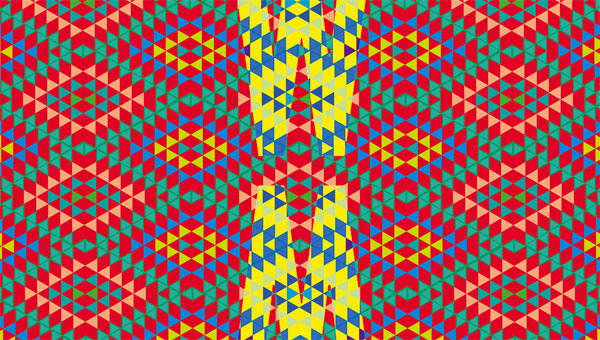Goat: World Music Review

I was asleep when I got the call.
“You want me to go where to meet who?” I stammered, eyes still glued shirt. “Blimey. I’ll pack my bag”.
I had been invited to take a musical journey to Sweden, to a village called Korpilombolo, a village which, in yesteryear, had held fast to the ideals of voodoo.
The antecedents of these original worshippers had subsequently been cast out by Christians – bloody Christians, eh – and as they escaped, and placed a curse on the village, what remained became the collective known as Goat. Now I was to have a sonic meeting with them.
This is what I found. This is my story, now inextricably linked to theirs.
Album opener Diarabi sounds instantly familiar- slow winding cultish guitars snaking into a frenetic psych-fuzz- the type of welcome Bruce Parry gets when he goes off on one of his jaunts. Diarabi perfectly sets the scene for what is to follow, namely a new and exciting chapter in the psychedelia movement replete with afrobeat rhythms and vocals, whining guitars, furious drumming, and an oft stomping but always seductive groove.
Goatman begins with a sixties’ American voice proclaiming a Creole mantra, that of people helping each other when life is hard and reaffirming the moral principles that will keep them bound together. As I edged further forward into this musical world I mentally noted what was being said to me and as I became further entwined and lost, remembering this mantra proved to be a great comfort for me.
The album constantly surprises; you’re locked into a rhythm before a stabbing, wailing guitar and thrashed drums slap you round the face and takes you somewhere new. All the while, that pulse carry’s on pulsing.
Goathead is particularly surprising as after the wonderful psych-carnage, it all finishes up with the sounds of windswept and freshly plucked guitar from the mountainside – as though everything that had happened was a figment of the past never to be explored again. Indeed, the more you listen to the album as a whole, the more layers, bubbling bits of groove, and needled bits if inspiration come out at you.
It’s a wonderful achievement and a relief that there are musicians, people, creating this.
Things get a bit more straight-up goodtime with Disco Fever, sounding exactly as its title suggests. By this time I am happily dancing round the room with the villagers, lapping up the swirling organ and smiley vocals.
Afterwards, Golden Dawn is waking up in an aromatic room wearing only a loincloth, uncertain how you got there. A mantra to “sacrifice what we are for what we could become” unnerves me; suddenly realising I’ve been inculcated into something more sinister.
But it’s too late now; I’m oiled up, drowsy and well, actually really rather happy with the whole arrangement. As a seventies soundtrack mixed with afrochanting kicks in.
“I think that’s the voodoo” I whisper to the girl in the next bed. She just nods, eyes closed, then a drumming breakdown and some chop-suey sounds take us off in another direction and a fully-fledged guitar freak out.
By now, the girl next to me is writhing on the floor and I half expect to see Christopher Plummer out of Dragnet appear in his goat-headed uniform.
Goat-headed? Now it all makes sense.
Run To Your Mama features an itchy guitar straight out of Rocky and this is the escape. The chase is on! But it’s one of those chases where you’re out of breath and without breaking sweat the cult keep gaining on you. “You better run to your mama now!”
Alas I don’t get that far and finally the ceremony to meet Goatlord occurs and I feel like Edward Woodward at the end of the Wicker Man, only the flames are sunny not hot.
“Det Som Aldrig Forandras” isn’t really a name that’ll trip off your tongue, but as an album closer it acts as a Goat best-of; incorporating jangly porn-meets-Shaft guitar, grinding rhythms, afrobeat drums, bouncing psych groove and the sound of voodoo people waving goodbye.
I’ve enjoyed my stay with them, and am already planning my next trip back.
Ed Spencer